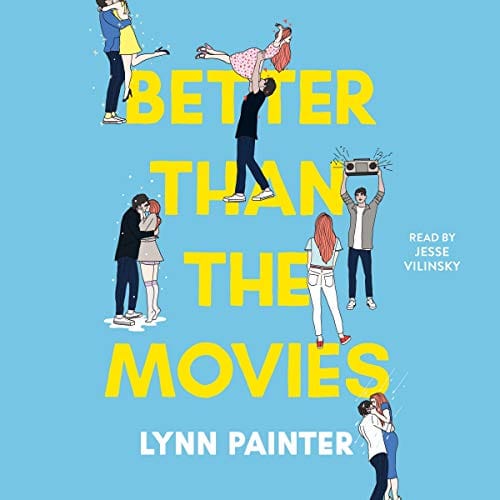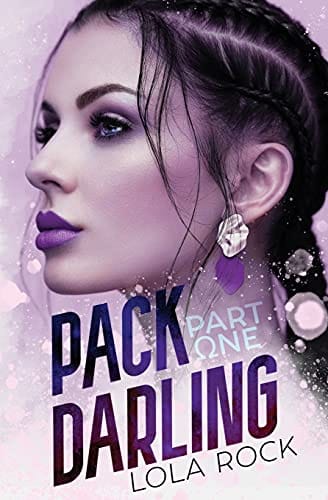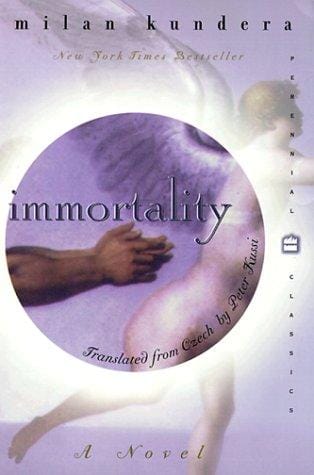Why “Better Than the Movies” Really Is Better Than the Movies
Discover why Lynn Painter's YA rom-com Better Than the Movies outshines any on-screen romance in this spoiler-light exploration.

Introduction: A Rom-Com That Lives Up to Its Name
Every so often a young-adult romance appears that reinvents the rules, reminding readers why the genre keeps us up until 3 a.m. Lynn Painter’s 2021 novel “Better Than the Movies” does exactly that. Packed with meet-cutes, pop-culture references, and enough emotional truth to fill a multiplex, the book dares to ask: What if real life could be as satisfying as our favorite cinematic love stories? In a market crowded with trope-heavy stories, Painter manages to spin something warm, witty, and unexpectedly profound.
Plot Overview Without Spoilers
Liz Buxbaum has spent her life scripting a perfect rom-com ending in her head. Senior year is her last chance. When her childhood crush Michael Young suddenly moves back to town, Liz sees the closing credits rolling in her favor. The snag? She needs help catching his eye, and her only way in is through Wes Bennet, her annoyingly charming next-door neighbor. They agree to a deal: Wes will play matchmaker if Liz helps him snag prom parking privileges. Like any classic film setup, chaos, chemistry, and self-discovery ensue.
Why It’s Truly “Better Than the Movies”
Clever title aside, the novel delivers a reading experience that eclipses many actual rom-com films. First, Painter takes familiar beats—friends-to-lovers, the deal, the makeover—and employs them knowingly, without cynicism. The writing respects the intelligence of its audience, sprinkling meta nods to Twelve Going On Thirty, How to Lose a Guy in 10 Days, and other classics while subtly subverting expectations. Instead of leaning on grand gestures alone, emotional payoff comes from conversations about grief, ambition, and the messy way love intersects with both.
Authentic Internal Monologue
Liz’s first-person narration strikes a hard-to-achieve balance between self-aware humor and raw vulnerability. Her inner commentary, peppered with playlists and movie quotes, creates intimacy that film visual shorthand can’t replicate. Readers feel each blush and cringe in high-definition.
Pacing That Lets Feelings Breathe
Movies have ninety minutes; a novel has room to linger. Painter uses that space to show car rides, banter over lawn-mowing, and late-night text chains—scenes that develop trust incrementally. By the time the finale arrives, the romance feels earned rather than edited for time.
Key Themes That Resonate Beyond High School
Though set against lockers and promposals, “Better Than the Movies” addresses universal dilemmas.
Grief and Moving Forward: Liz’s connection to her late mother shapes her obsession with happy endings. The story validates how art—especially movies—can become a coping mechanism while nudging readers toward healthier, real-life resolutions.
Owning Your Narrative: Much like Liz tries to storyboard her life, many teens (and adults) curate identities on social media. Painter reminds us that unpredictability often writes the best scenes.
Breaking Out of Labels: Wes begins as the “boy next door” who dings mailbox posts with his truck, but layers unfold: he’s a loyal brother, an unlikely tutor, and a closet romantic. The message? People can surprise you if you let them step outside the frame.
Characters That Leap Off the Page
Painter’s supporting cast avoids becoming background extras. Liz’s best friend, Jocelyn, offers more than the standard cheerleader sidekick; she’s navigating her own anxieties about the future. Even Michael, ostensibly the dreamboat, reveals insecurities beneath his boy-band smile. These textured portrayals give stakes to every hallway interaction, turning familiar tropes into personal moments readers can claim.
The Chemistry Between Liz and Wes
The banter crackles from page one, but chemistry isn’t built on quips alone. Painter allows moments of quiet—sharing earbuds, revisiting childhood tree houses—to ground the attraction in shared history. Their romance is less about “opposites attract” than about rediscovering someone you thought you had fully cataloged.
Movie Moments We All Crave
Painter sprinkles set pieces tailor-made for the big screen: a neighborhood paint fight, a last-minute dash across the parking lot, a slow-dance under twinkle lights. Yet she pairs every swoon-worthy beat with introspection. The paint fight isn’t mere slapstick; it illustrates Liz’s choice to embrace imperfection. The slow-dance arrives not as a plot obligation but as culmination of mutual vulnerability. By binding spectacle to character growth, the book achieves cinematic flare without sacrificing narrative depth.
Writing Style: Light, Lyrical, and Laugh-Out-Loud
Pun-laden chapter titles, playlist embeds, and snappy dialogue give the prose rhythm. Painter’s humor lands because it emerges from specific personality quirks—Liz’s penchant for dramatic monologues, Wes’s deadpan one-liners—rather than generic jokes. Readers looking for escapism will grin; those seeking emotional sincerity will highlight unexpectedly poignant lines about grief, adult expectations, and self-compassion.
Readers’ Reception and Cultural Impact
Within months of publication, “Better Than the Movies” rocketed up TikTok’s #BookTok charts, fueling reprint after reprint. Fans post annotated copies, aesthetic boards, and wish-cast dream actors. Librarians praise the book for hooking reluctant readers; educators note its gentle exploration of mourning without heavy-handedness. In a landscape where YA titles compete with streaming giants, Painter’s novel proves paper pages can still dominate the cultural conversation.
Who Should Read This Book?
If you adore Netflix rom-coms but crave more emotional layering, add this to your TBR. Fans of Jenny Han, Emma Lord, or Kasie West will find familiar comfort with a fresh voice. Parents searching for a lighthearted yet meaningful gift can hand it over knowing it delivers squeaky-clean intimacy while tackling real teen issues. And yes, hopeless romantics of any age will sigh contentedly at the final page.
Final Thoughts: Roll Credits, Start Reading
“Better Than the Movies” succeeds because it honors the magic of cinematic love stories while acknowledging real life’s rough edits. Lynn Painter invites readers to celebrate tropes, then gently reminds us that genuine connection isn’t scripted; it’s discovered in broken garages, shared playlists, and the courage to rewrite your own ending. Whether you’re stocking summer reading lists or seeking a comfort book for rainy afternoons, this novel is—true to its title—better than the movies.



